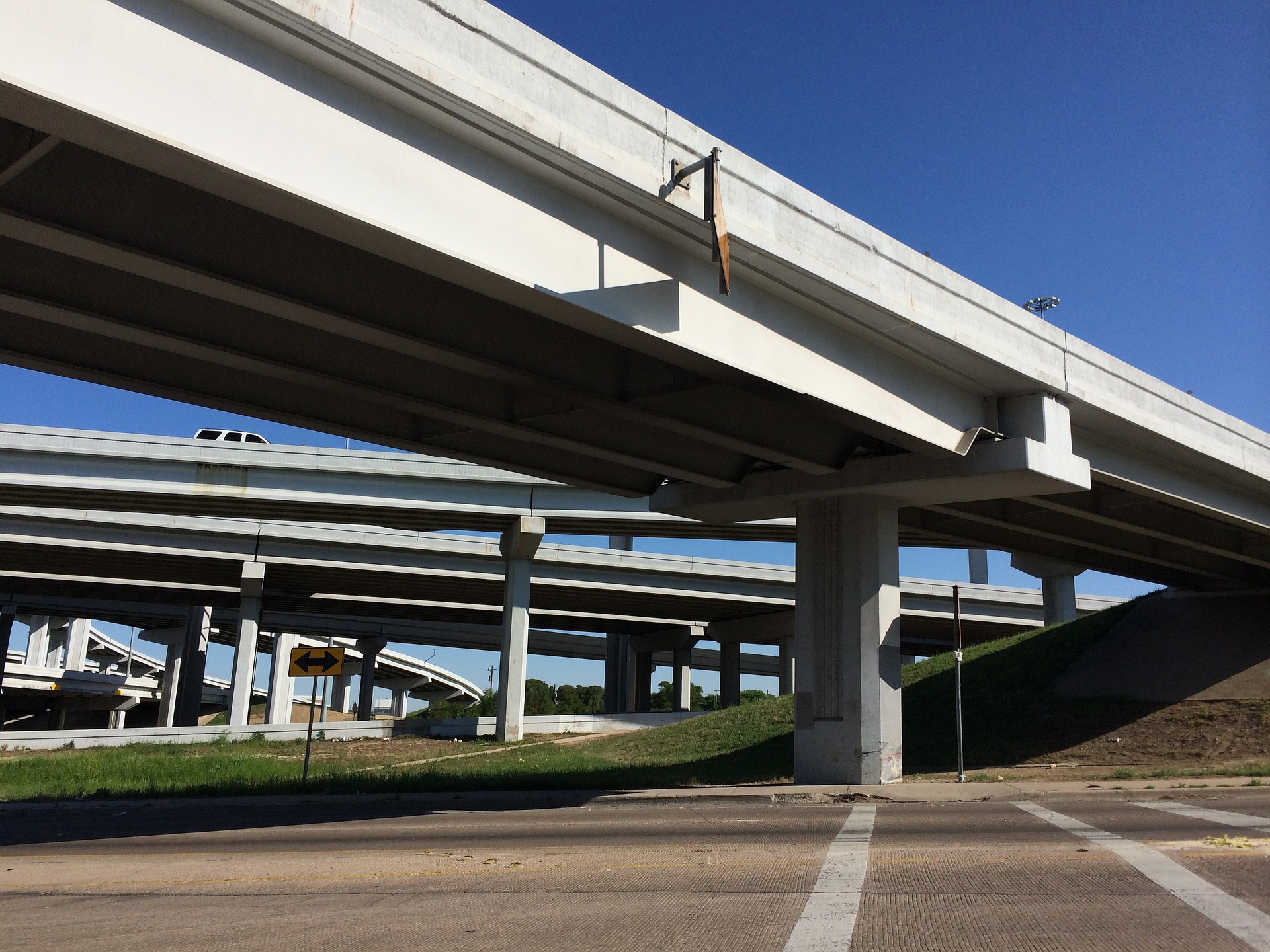Infrastructure Bill Creates Demand for Graduates
Already bright, job prospects for CSULB Civil Engineering and Construction Management graduates are even more promising now that the $1.2 trillion federal Infrastructure Bill has passed. Students are receiving multiple offers, often well before they graduate.
“We’re in a hiring fever,” said CSULB Civil Engineering Professor Shadi Saadeh. “Companies in the public and private sector are hiring a lot of graduates.”
The bill, officially called the Infrastructure Investment and Jobs Act, earmarks $500 billion in funding over the next five years for infrastructure, defined as highways, bridges, rail, ports, and transit, as well as broadband, energy, and water systems. Some $66 billion will be spent on passenger and freight railways; $42 billion on airports, ports, and waterways; $40 billion on bridge replacement and repair, and $39 billion on public transit.

Mary T. Teichert, president of Teichert Inc., said projects that can be accelerated or are “shovel ready,” will create immediate opportunities for companies and prospective employees in the heavy engineering/heavy civil industry. Even more importantly, the bill’s passage will enable those in the industry to see a path to the larger, longer-term projects that will improve the nation’s infrastructure.
“The confidence that those projects are coming is likely to stimulate planning, investment, and hiring decisions by both agencies and heavy civil firms,” said Teichert, who is also board vice president of the Beavers, a heavy engineering construction association. “There is already an immense demand for capable engineers in this industry and it will only be intensified by the upcoming funding.”
The infrastructure improvements are seen as long overdue. Last year, the American Society of Civil Engineers gave U.S. infrastructure a grade of C-. According to ASCE, the Infrastructure Bill addresses all 17 of the problem areas the organization pointed out.
“All over the country, there’s such a need for rehabilitating our infrastructure,” said Dave Woods, executive director of the Beavers Inc., adding that he’s pleased to see $17 billion allocated for port infrastructure. “Los Angeles and Long Beach are such vital ports. The money is badly needed,” he said.
Construction in California has been robust in recent years due to the $1 billion Senate Bill 1, which funded transportation projects with gas taxes. The state will receive $45.5 billion from the Infrastructure Act. “That will in turn bring a lot of projects—rail, roads, bridges. All of those require civil engineers at different skill levels,” said Saadeh, who will be adding extra seats in the Caltrans Joint Training and Certification Program, which provides standardized training for highway materials testing.
Woods said due to the multiplier effect, construction projects typically generate 10 additional jobs for every project job. “There’s tremendous demand for construction management and civil engineers. It’s been a great time to be looking for a job,” he said.
A popular path to a full-time job is securing a summer internship while still in college. Many companies view internships as job tryouts, and if interns perform well, they can receive full-time offers.
Typically, an undergraduate degree is sufficient to land a full-time job in the industry. However, if students want to continue their education, Woods said the combination of a civil engineering undergraduate degree and a graduate degree in construction management “is dynamite.”
Teichert said job fairs and other recruiting events often lead graduating engineers to Teichert Inc., which has been operating in California for 134 years and holds State Contractor’s License No. 8. The company recruits heavily from Cal State programs in civil engineering, construction management, and related programs, and offers dozens of summer internships. Another way to gain exposure to top employers in the industry is by participating in the ASC Reno Competition and Construction Management Conference.
The civil engineering and construction industry, like many, has been experiencing a wave of retirements, and some graduates have been absorbed into other engineering fields. The Association of General Contractors is already warning of a construction industry labor shortage.
“The heavy civil / heavy engineering industry definitely does not have enough trained engineers for the number of projects we expect to see from the infrastructure bill,” said Teichert. “There is already an immense demand for capable engineers in this industry and it will only be intensified by the upcoming funding.”





